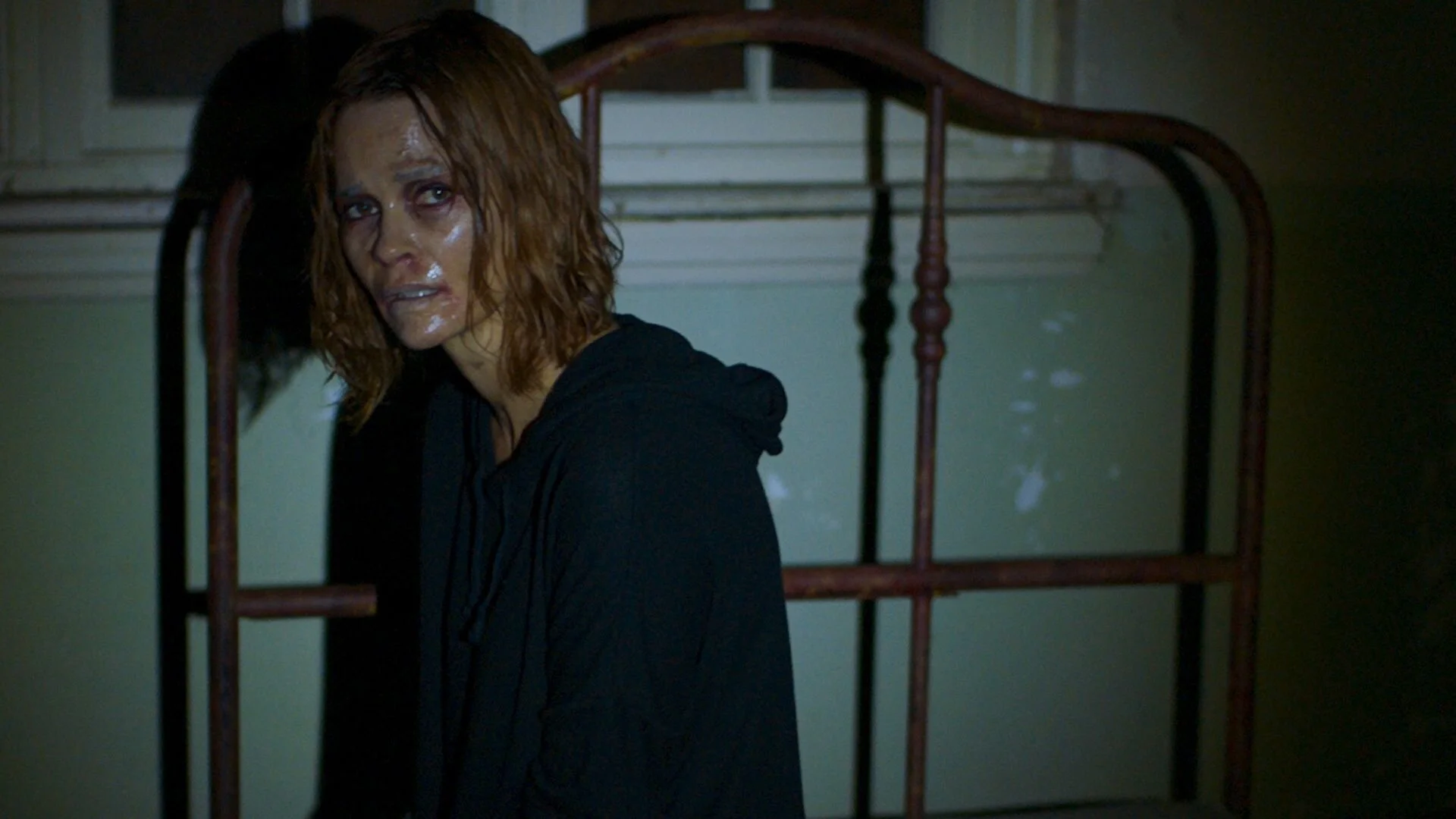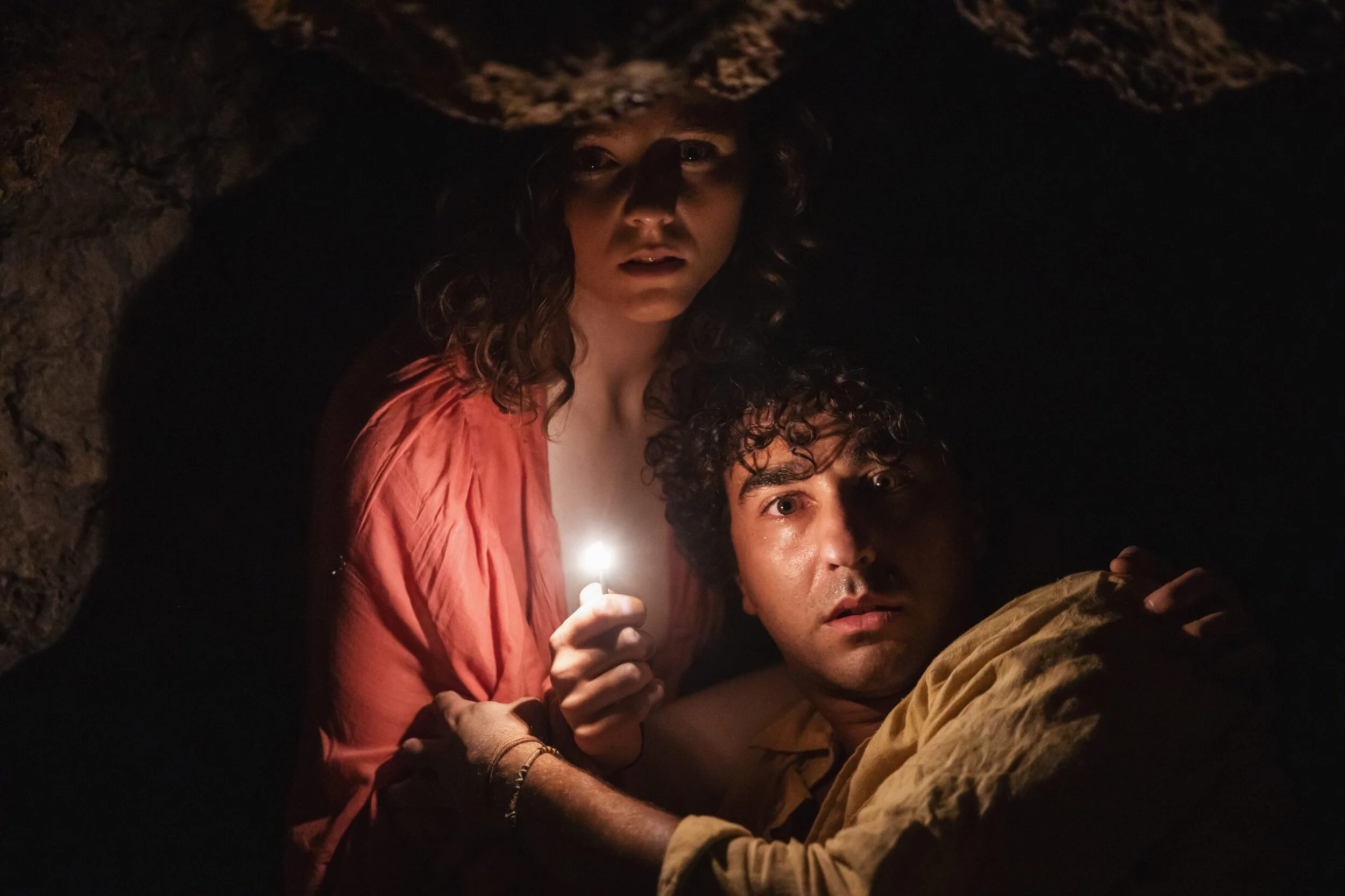Jungle Cruise (2021)
It’s a Woke World After All
There’s no denying Disney’s golden touch. Who else could turn a theme park ride into a rousing two-plus-hour action extravaganza full of humor and heart'; groundbreaking special effects; and a cool new mythology that actually warrants sequels in order to fully explore its potential?
The Mouse House has reinvigorated the big-screen experience with a wisecracking man of the waterways who’s bound to become a cinema icon. He must guide a young couple through treacherous exotic locations in search of a legendary item whose magical properties can, among other things, lift ancient curses.
Unfortunately, there’s another crew of explorers on their tail. This one is comprised of ruthless, undead monsters whose powers rise and fall according to the same kind of magical rules that cause treasures to appear and disappear in the light of the moon, and whose appearances push the boundaries of family-friendly entertainment.
As if that’s not enough, there’s a third major player on this spectacle-laden stage: an ambitious military man who pursues everyone in his massive ship, a symbol of technological progress erasing the sea-worn relics of another age.
In short, Pirates of The Caribbean: The Curse of the Black Pearl is one of 2003’s very best films.
Now let’s talk about its bland, misguided, creatively bankrupt imitator, Jungle Cruise.
Okay, that’s not entirely fair. The screenwriters also steal liberally from Indiana Jones and the Last Crusade, but I’ll get back to that in a bit.
Maybe I just need to stop going to Disney movies, or at least stop reviewing them (beat you to it, comments section!). These aren’t made for people who’ve seen a lot of films, and who don’t appreciate repackaged and bastardized versions of classics. They’re made for normies who forget most of what they’ve seen by the time they reach their car—as well children.
And that’s fine. Those people buy tickets and keep the industry alive. Despite decades of disappointment, I continue to be a celluloid romantic, a believer in every movie as a potential source of amazement—or as you might call me, a sucker for savvy marketing.
But more and more, I’ve noticed something sinister popping up in a lot of Disney films (and a lot of popular entertainment in general). The advent of the so-called “strong, empowered woman” in recent years has been profoundly unsettling. Not because women don’t deserve to take center stage, but because of the way in which the creative teams choose to depict their heroines’ alleged strength and empowerment.
The most recent (and most emblematic) example is Emily Blunt’s Jungle Cruise character, Lily Houghton. She and her brother, MacGregor (Jack Whitehall), wind up on a rickety Amazon tour boat captained by pun-happy goofball brawler, Frank Wolff (Dwayne Johnson). Their mission: locate a rare flower with supernatural healing properties before a quartet of Spanish conquistador zombies and a wily German submarine captain (Jesse Plemmons) beat them to it.
Both Johnson and Blunt have built careers on screen presence and sheer charisma. The former offers a sort of flesh-and-blood riff on his Maui character from Moana here. He’s a mischievous, adventure-seeking guide caught up in an adventure he hadn’t quite bargained for. Blunt, on the other hand, is called upon to use all of the buttoned-up, sneering condescension of her break-out Devil Wears Prada role while eliciting none of the surprising empathy that balanced that character out—nor the humanity she brought to a part brimming with true empowerment, A Quiet Place’s Evelyn Abbott.
Like Captain Marvel and Cruella before her, Lily Houghton bulldozes her way through scenes with an off-putting haughty condescension, dressing down absolutely everyone and exhibiting vulnerability only when confronted with situations she cannot control. She has no back story, aside from having inherited a love of exploration from her deceased father (check box 43 on your Disney Bingo card). And despite constant reminders that she is denied opportunities in society due to her gender, she appears to have received world-class training in acrobatics, swordplay, and cartography.
In short, “strong empowered woman” isn’t just the casting sheet descriptor for Lily Houghton, it’s the sum-total of her personality, motivation, and character arc.
If I was the conspiratorial type, I might suspect the film’s three male screenwriters of making Jungle Cruise’s protagonist an unlikable Mary Sue caricature as some kind of “The Patriarchy Strikes Back” subversion. Mostly, though, this feels like the result of a scared-dude trio stumbling over themselves to please a demographic whom they’ve either A) never interacted with in real life, or B) assume won’t be insulted by insinuating that the best way for a woman to embody strength is to exaggerate the absolute worst traits of men.
Seriously, if the roles were reversed here, and Dwayne Johnson spent nearly two hours rolling his eyes at women, undercutting every decision made by a woman, and hurling verbal abuse at the opposite sex, there would be boycotts of Jungle Cruise before the Thursday night previews had let out.
You might claim that this has been the default disposition of leading men in action movies for decades. I would answer that charge by recommending you actually watch the movies you think you’re talking about, and pay closer attention.
Let’s take Indiana Jones (or most any character played by Harrison Ford, really). Yes, he’s a brash, hot-headed, possibly alcoholic swashbuckler.
But that’s his moonlighting persona.
On the flip-side, he’s a mild-mannered school teacher who’s bewildered by his students and confounded by the hard-charging Marion Ravenwood. Hell, the opening minutes of Raiders of the Lost Ark aren’t just a special-effects showcase, they’re George Lucas’ thesis statement for Indy himself. We’re presented with a brave and knowledgeable explorer/hobbyist who screws up while stealing an idol. He barely escapes with his life, only to be bested by a fellow treasure-hunter with more resources and cunning.
The closest we get to character development in Jungle Cruise are a bizarrely human exchange between MacGregor and Frank, and a truly sensational ten-minute flashback in which we learn how Frank came to be an Amazon tour guide. Both involve secrets I won’t ruin here, and neither involves Lily (aside from the fact that she’s MacGregor’s sister).
By film’s end, Lily has taken a liking to Frank, but only after it is revealed that he is much more than a lowly boat captain. Her newfound affections feel somewhat genuine only because of Blunt’s gifts as a performer. From a storytelling standpoint, this zero-hour change-up has all the warm fuzzies of those stories where the popular girl won’t give the class nerd the time of day…until it comes time to cheat on the big test.
A somewhat related puzzlement to this critique of Disney’s current-year wokeness is the fact that all of their female-empowerment fables are set in the past. Mulan took place in Ancient China; Cruella, the 1960s; Captain Marvel, the 90s (hell, even Warner Bros/DC’s Wonder Woman movies take place in World War I and 1984, respectively). As I hinted at in my review of The Aeronauts, this disturbing trend of adding modern cultural norms to historical fiction could, in a way, come back to bite Progressives in the ass somewhere down the line.
There could very well be a disconnect in the generation at whom Jungle Cruise and its ilk are targeted. When little boys and girls learn about the oppression of women and minorities throughout history, will their brains short circuit while watching this onslaught of politically correct entertainment in which women rule the roost and (for example) a wealthy black couple winds up cracking jokes with white members of high-society on an Amazon tour boat…in 1916?
The trend gets weirder and weirder, and it’s easy to imagine the same pop landscape that gave us a black Anne Boleyn eventually puking out a Mexican Black Panther.
These attempts to paste over history and denigrate the truly stunning and brave qualities of those to whom that history dealt a raw deal—well, they make me uncomfortable. Sure, the blockbuster entertainment of my youth was largely “stale, male, and pale” by today’s standards, but it also focused on solid storytelling involving recognizably flawed yet heroic characters encountering fantastical situations.
The trend of setting these modern female-centric movies in the past feels like a sadistic negative-reinforcement loop that seeks to re-victimize women again and again and again by contextualizing them in eras where misogyny was more overt and systemic than in the present-day—resulting in a kind of psychic trap that undercuts the progress made on numerous civic and cultural fronts.
The Indiana Jones trilogy took place in the 1930s as an homage to the serials that inspired it, and so the hero could defeat the greatest evil mankind has ever known. Jungle Cruise takes place in the early twentieth century so the main character can be perpetually outraged at men doubting her abilities.
In fifty years, Indiana Jones and Jack Sparrow will still be icons of imagination. Jungle Cruise will be a theme park tie-in that few can find and fewer will care to.





